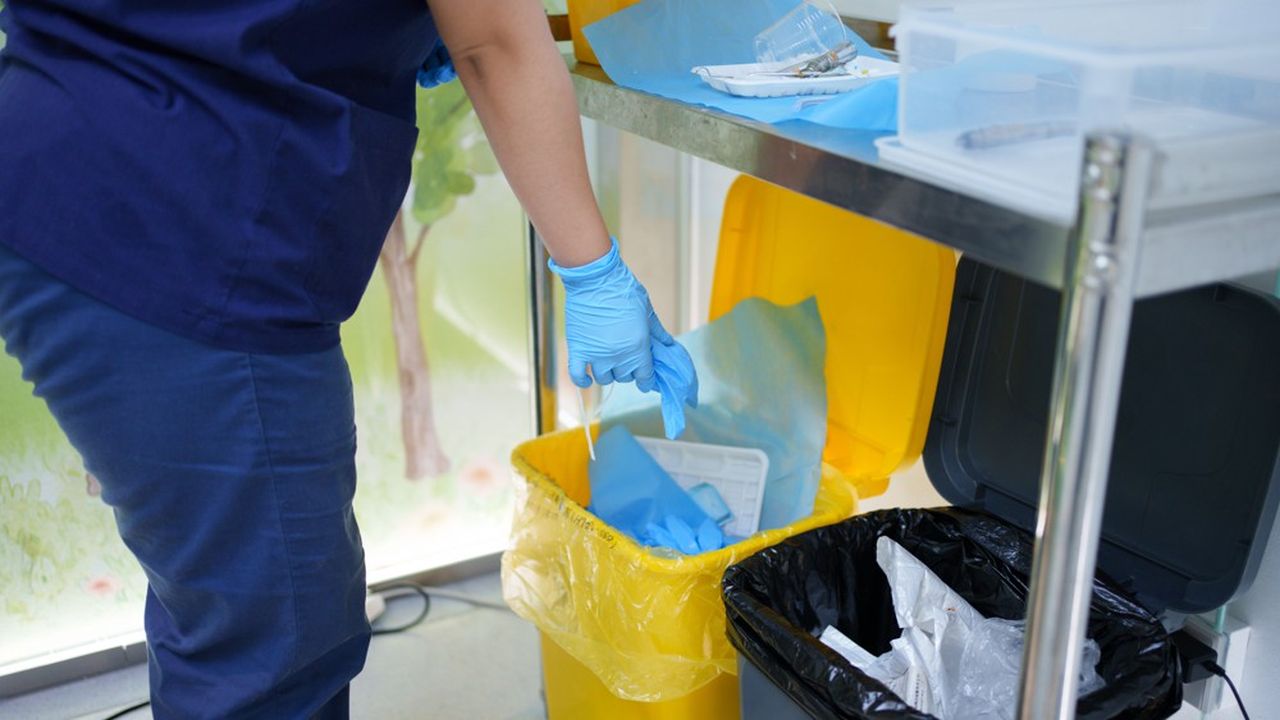
As sustainability becomes a global priority, reducing single-use plastic (SUP) in hospitals represents not only an ecological imperative but also a social and economic opportunity.
Hospitals, focused on their mission to provide care, can no longer ignore the environmental consequences of their activities. Actions exist on the ground but rely on the voluntary motivation of a few convinced caregivers. It is now time to move up a gear!
Reconciling ecology and hygiene
Since the health crises of the 1990s, the authorities have applied the precautionary principle by recommending the use of the PUU, which was supposed to reduce health risks and ensure the quality of care. Plastic is now omnipresent in hospitals: gloves, surgical drapes, intravenous bags, baby bottles, etc. These products, generally thrown away after a single use, generate considerable quantities of waste (700,000 tonnes of medical waste in 2011 according to ADEME, of which around a quarter was plastic) and are all sources of endocrine disruptors.
But this situation is not inevitable. We can reconcile ecology and hygiene by reducing the PUU in the health sector – as shown by the 5R pyramid (refuse, reduce, reuse, recycle, return to the earth) which has guided waste management in France for a decade, it is relevant to prioritize reduction over reuse or recycling. In addition, initiatives undertaken locally are often accompanied by health, human and economic benefits.
Reducing PUUs can indeed reduce costs: at the Clermont-Ferrand University Hospital, investing €3,000 in reusable anesthesia trays generated €4,000 in savings in the first year, then €8,000 per year. The Princess Grace Hospital in Monaco reduced the cost of headgear from €0.2 to €0.01 per use by opting for reusable fabric headgear.
The ecological benefits are also undeniable: at the Clermont-Ferrand University Hospital, the switch from single-use to reusable delivery kits has reduced greenhouse gas emissions by 68%, the use of mineral resources by 96%, and water consumption by 82%.
Incentive, promotion
The strength of mobilization is another asset of these actions: at the Limoges University Hospital, which has chosen to replace PUU baby bottles with glass baby bottles, caregivers are proud of their commitment and parents are satisfied to know that their children are protected from endocrine disruptors.
Finally, contrary to popular belief, reducing the PUU can be synonymous with improving health safety. At the Bordeaux University Hospital, reducing glove consumption has significantly improved hand hygiene by re-establishing good practices for using hydroalcoholic gel.
But these actions are still too little supported and widespread to change the health sector. The ecological transition must become an explicit objective of the health system – and in particular of its executives. This involves, for example, incentives (evaluation criteria on sustainable actions), the promotion of actions (profit-sharing of the teams involved, communication on their work), the active involvement of learned societies and the strengthening of human resources dedicated to the ecological transition in hospitals.
Let us insist: although under pressure, the health sector can reduce its ecological footprint without compromising the quality of care or increasing its cost. It is therefore not only possible, but also desirable from all points of view: the resilience and long-term maintenance of our health system will only be possible if we accelerate efforts to make it more ecological.
Coline Claude-Lachenaud is an engineer in the Corps of Mines.
Eponine Loridant is an engineer in the Corps of Mines.







